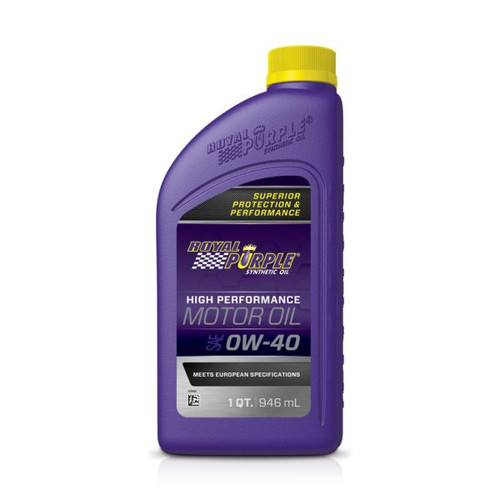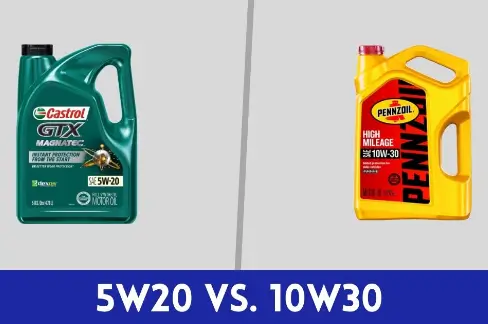Yes, you can mix 5W20 and 10W30 motor oils. Combining these oils can provide an intermediate viscosity for your engine.
When mixing oils, it is important to follow the owner’s manual recommendations and consider the climate conditions and the age of your vehicle. –
Understanding Engine Oil Viscosity
Engine oil viscosity plays a crucial role in ensuring optimal engine performance and longevity. But what exactly is engine oil viscosity? How is it measured? And why does it matter? In this article, we will delve deeper into these questions to help you understand the importance of viscosity when it comes to your engine’s health.
What Is Engine Oil Viscosity?
Engine oil viscosity refers to the oil’s resistance to flow and its ability to lubricate engine components effectively. It determines the oil’s thickness or thinness, which affects its performance in different working conditions.
How Is Engine Oil Viscosity Measured?
Engine oil viscosity is measured using two numerical values, separated by a letter ‘W,’ which stands for winter. The first number indicates the oil’s viscosity at low temperatures, while the second number represents the oil’s viscosity at high temperatures. For example, in 5W20, 5 represents the oil’s viscosity at low temperatures, and 20 indicates its viscosity at high temperatures.
The Importance Of Viscosity In Engine Performance
Viscosity plays a vital role in engine performance and overall protection. The right oil viscosity ensures proper lubrication, reduces friction, and prevents wear and tear on critical engine components. When the engine is started, the oil needs to flow quickly to provide immediate lubrication. On the other hand, during high-temperature conditions, the oil needs to maintain a sufficient film thickness to prevent metal-to-metal contact.
Here are a few reasons why viscosity is crucial for engine performance:
- Efficient Lubrication: The correct viscosity allows the oil to flow smoothly and reach all the engine parts, even those in hard-to-reach areas.
- Protection from Wear: The right oil viscosity provides a protective barrier between metal surfaces, reducing friction and preventing excessive wear.
- Temperature Stability: Engine oil with the appropriate viscosity maintains its performance and consistency across a wide range of temperatures, ensuring adequate lubrication under different operating conditions.
Choosing the right oil viscosity for your engine is crucial. Consult your vehicle’s owner’s manual or seek professional advice to determine the ideal viscosity grade recommended by the manufacturer. Remember, using the wrong oil viscosity can negatively impact engine performance and potentially lead to costly repairs.
In conclusion, understanding engine oil viscosity is essential for maintaining your engine’s health and ensuring optimal performance. By grasping the concept of viscosity, you can make informed decisions when it comes to selecting the right oil for your vehicle’s needs.
Differences Between 5w20 And 10w30 Engine Oil
Engine oil is a crucial component that helps in the smooth operation of your vehicle’s engine. When it comes to choosing the right oil for your engine, it’s important to understand the differences between various types. Two common types of engine oil are 5W20 and 10W30. In this article, we will explore the characteristics and properties of both oils, as well as explain the numerical values in engine oil ratings.
Explaining The Numerical Values In Engine Oil Ratings
Before diving into the characteristics of 5W20 and 10W30 oils, it’s vital to understand what the numerical values in their ratings represent. In engine oil ratings, the first number, such as “5W” or “10W,” indicates the oil’s viscosity or thickness at lower temperatures. The “W” stands for winter, indicating the oil’s performance during cold weather conditions. The lower the number, the thinner the oil, enabling it to flow more easily in cold temperatures. The second number, such as “20” or “30,” represents the oil’s viscosity at higher temperatures. The higher the number, the thicker the oil, providing better protection at high engine temperatures.
Characteristics And Properties Of 5w20 Oil
5W20 oil is commonly recommended for newer vehicles and offers several advantages. Here are some key characteristics and properties of 5W20 oil:
- Low viscosity at lower temperatures, ensuring easier engine startup during cold weather.
- Improved fuel economy due to its thinner consistency, reducing friction and increasing engine efficiency.
- Provides adequate engine protection at normal operating temperatures.
- Perfect for vehicles that require a lighter oil viscosity.
Characteristics And Properties Of 10w30 Oil
10W30 oil is a common choice for older vehicles or those subjected to harsh operating conditions. Here are some characteristics and properties of 10W30 oil:
- Thicker viscosity at lower temperatures compared to 5W20, which may affect engine startup in extremely cold weather.
- Offers better engine protection at higher temperatures and under heavy loads.
- May provide better lubrication in high-mileage engines, helping to reduce oil consumption and prevent leaks.
- Suitable for engines with wider oil clearances or increased wear due to age or intense use.
Now that you understand the differences between 5W20 and 10W30 oils, you can make an informed decision about which one is best suited for your vehicle. Remember to always consult your vehicle’s owner manual or seek professional advice to ensure you choose the right engine oil for optimal performance and longevity.
Can You Mix 5w20 And 10w30 Engine Oil?
When it comes to engine oil, it’s important to understand the compatibility and potential risks associated with mixing different types. One common question that arises is whether it’s safe to mix 5W20 and 10W30 engine oils. In this article, we will delve into the factors you need to consider before mixing these oils, discuss their compatibility, and highlight the potential risks and consequences.
<![endif]
Factors To Consider Before Mixing Different Engine Oils
Before mixing different engine oils, it is essential to take certain factors into account to ensure optimal performance and avoid any potential harm to your vehicle. These factors include:
<![endif]
|
<![endif]
The Compatibility Of 5w20 And 10w30 Oils
5W20 and 10W30 are both multi-viscosity engine oils commonly used in vehicles. While they may have different viscosity ratings, these oils are generally compatible with each other. This means that mixing them together should not cause any immediate adverse effects in most cases. However, it’s still crucial to consider the factors mentioned earlier and consult your vehicle’s manual or a professional for specific recommendations.
<![endif]
Risks And Potential Consequences Of Mixing Oils
While mixing 5W20 and 10W30 oils may not immediately cause harm to your engine, it’s important to be aware of the potential risks and consequences. These include:
<![endif]
|
<![endif]
Recommended Practices For Mixing Engine Oils
Mixing engine oils can be tricky, and it is generally not recommended to mix different viscosities like 5W20 and 10W30. The varying thicknesses can affect lubrication and reduce engine performance. It’s best to consult the manufacturer’s recommendations and use a single oil type for optimal engine performance.
Mixing engine oils is often a topic of discussion among car owners and enthusiasts. While it is generally recommended to stick to a single type and viscosity of oil, there may be situations where mixing oils becomes necessary. In this article, we will explore the situations where mixing 5W20 and 10W30 oils might be required, the steps to properly mix them, and the guidelines to follow to ensure compatibility and optimal performance.
Situations Where Mixing Oils Might Be Necessary
There are certain circumstances where mixing different types and viscosities of engine oils might be necessary. Here are a few situations where you might find yourself considering oil mixing:
- Low oil levels: If you are running low on oil and do not have access to a specific type or viscosity, mixing oils of the same grade but different viscosities can be a temporary solution.
- Temperature variations: Depending on where you live, the climate may vary significantly throughout the year. Mixing oils with different viscosities can help ensure optimal engine performance in extreme temperature conditions.
- Transition periods: When switching from one oil type or viscosity to another, mixing small amounts of both oils during the transition period can help minimize any potential adverse effects.
Steps To Properly Mix 5w20 And 10w30 Oils
- Check compatibility: Before mixing any oils, always check the vehicle manufacturer’s recommendations and guidelines. Certain vehicles may have specific requirements regarding oil types and viscosities.
- Measure carefully: Use a clean container or a suitable measuring device to ensure accurate blending. Measure the desired quantities of 5W20 and 10W30 oils depending on the required viscosity.
- Mix thoroughly: Pour both oils into the container and mix them thoroughly to achieve a uniform blend. Stir gently but vigorously to ensure proper blending.
- Label the mixture: To avoid confusion, label the container with the types and viscosities of the oils used. This will help you keep track of the blended oil for future reference.
- Use as required: Once the oils are thoroughly mixed, you can use the blended oil according to the vehicle manufacturer’s recommendations and the specific requirements of your vehicle.
Guidelines To Follow To Ensure Compatibility And Performance
- Stick to the same manufacturer: Whenever possible, use oils from the same manufacturer to minimize the risk of compatibility issues.
- Follow recommended ratios: If mixing different viscosities, maintain the recommended ratio specified by the vehicle manufacturer. This will help ensure the desired performance and protection for your engine.
- Monitor performance: Keep an eye on your vehicle’s performance after using the blended oil. If you notice any changes or issues, consult a professional mechanic who can provide expert advice and guidance.
- Regular oil changes: Regardless of whether you mixed oils or not, regular oil changes are essential to maintain the health and longevity of your engine. Follow the recommended oil change intervals based on your vehicle’s specifications.
Guidance For Choosing The Right Engine Oil
Understanding your vehicle’s oil requirements, and selecting the appropriate engine oil, is crucial for maintaining optimal performance and extending the lifespan of your vehicle. When it comes to engine oil, one common question that often arises is whether it is safe to mix different weights, such as 5W20 and 10W30. Let’s explore this topic in more detail and provide guidance for choosing the right engine oil for your vehicle.
Understanding Your Vehicle’s Oil Requirements
Before we delve into the topic of mixing different engine oil weights, it’s important to understand your vehicle’s oil requirements. Consult your vehicle’s owner manual or refer to the manufacturer’s guidelines to determine the recommended oil weight and specifications for your particular model.
Factors To Consider When Selecting Engine Oil
Several factors should be considered when selecting the right engine oil for your vehicle. These include:
- Climate conditions: The climate in which you drive plays a significant role in determining the right oil viscosity. Cold weather requires thinner oils, while hotter temperatures necessitate thicker oils to provide adequate lubrication.
- Vehicle age and mileage: Older vehicles or those with higher mileage may benefit from high mileage oils, which contain additives designed to reduce engine wear and prolong engine life.
- Driving habits and conditions: If you frequently engage in stop-and-go traffic or towing heavy loads, you may require an engine oil with better thermal stability and anti-wear properties.
Recommendations Based On Your Vehicle And Usage Requirements
Based on your vehicle and usage requirements, it’s essential to select the appropriate oil weight and specifications. Here are some general recommendations:
- If your vehicle’s manufacturer recommends a specific oil weight, it’s typically best to adhere to those guidelines.
- In cases where there is no specific recommendation, consider the climate in which you drive. Thicker oils, such as 10W30, are more suitable for hotter climates, while thinner oils like 5W20 are better for colder climates.
- If you find yourself in a situation where mixing different oil weights is unavoidable, such as during an emergency, you can generally mix oils with a similar viscosity rating without causing significant harm to your engine. However, it’s always best to consult a professional mechanic or refer to your vehicle’s manual for specific guidance.
By considering your vehicle’s oil requirements, as well as other factors like climate, age, and driving habits, you can make an informed decision when selecting the right engine oil. Regularly changing the oil at the recommended intervals and using the appropriate oil weight can greatly contribute to the overall health and longevity of your vehicle’s engine.

Credit: santiemidwest.com
Frequently Asked Questions For Can You Mix 5w20 And 10w30
Can You Mix 5w20 And 10w30 Motor Oil?
Yes, you can mix 5W20 and 10W30 motor oil, but it is not recommended. Mixing different viscosities can affect the oil’s ability to lubricate properly and may result in engine damage. It’s best to use the recommended oil viscosity for your vehicle as stated in the owner’s manual.
What Happens If I Mix 5w20 And 10w30 Motor Oil?
Mixing 5W20 and 10W30 motor oil can alter the viscosity of the oil, leading to decreased lubrication and potential engine damage. The oil may become too thin or too thick, affecting the engine’s performance and potentially causing friction and wear.
It is recommended to stick to the recommended motor oil viscosity for your vehicle.
Is It Safe To Mix Different Motor Oil Viscosities?
While it is generally safe to mix different motor oil viscosities, it is not advisable. Mixing different viscosities can affect the oil’s ability to protect your engine properly. It’s best to use the recommended motor oil for your vehicle to ensure optimal engine performance and longevity.
Refer to your owner’s manual for the recommended oil viscosity.
Conclusion
While it may be tempting to mix different viscosity motor oils like 5W20 and 10W30, it is generally not recommended. Mixing these oils can affect the lubrication and performance of your engine, potentially causing damage in the long run. It’s always best to consult your vehicle manufacturer’s recommendations and stick to using the appropriate oil viscosity to ensure optimal engine functioning.


Leave a Reply